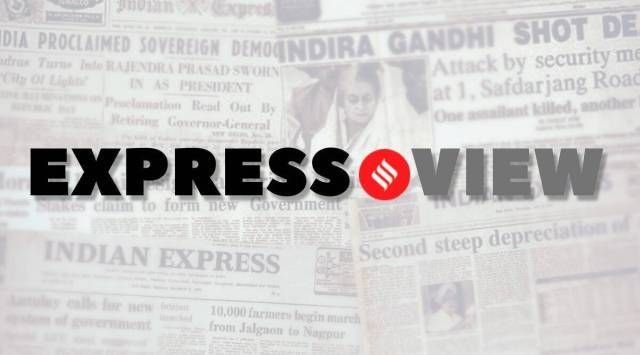
Deputy Chief Minister of Maharashtra Devendra Fadnavis railing against citizens he calls “Aurangzeb ki aulad”, following communal tension and violence in Kolhapur sparked by allegedly provocative social media posts earlier this week, is outrageous — and a matter of deep disquiet.
For the Deputy Chief Minister to speak this language of blatant prejudice in a moment that calls for sagacity and restraint is an abdication of the responsibility vested in his high office.
It’s a dogwhistle — and more. His lurch to the extreme is surprising, too. Once seen as a suave and moderate young leader in the BJP, as Chief Minister he often underlined the rule of law when it came to cracking down on those who unleashed fear and terror in the name of Hindutva.
Now his attempt to recast himself as a hard-eyed hawk in Maharashtra is the flailing of a leader who is seen to be sidelined in his own party. It points to his bid to reclaim space by emulating a model of politics that has apparently paid off for another BJP leader, Yogi Adityanath, in another BJP-ruled state, UP. But as much as it speaks of a desperate politician and his calculations of upward mobility, Fadnavis-speak also gestures to a wider political roiling in Maharashtra.
Something is changing – for the worse – in a state with a strong tradition of progressive political movements and social reform, and where despite the rise of a nativist politics and occasional flare-ups between communities, communal polarisation has been neither widespread nor pervasive.
The collapse of the Maha Vikas Aghadi coalition after an internal split in the Shiv Sena, and the return to power of the BJP in partnership with the Eknath Shinde faction seems to have inaugurated a renewed competition for the “Hindutva vote”.
Since November, under the banner of the amorphous Sakal Hindu Samaj, an umbrella body with no single leader or organisation, and many outfits linked to the Sangh Parivar, “Hindu jan aakrosh” morchas or rallies have been held across the state’s districts. Their stated agenda: To press for laws against “love jihad” and “land jihad”.
The attendance of BJP and (Shinde) Sena leaders, MLAs, and office-bearers at many of these rallies and the climate of impunity in which hate speeches are made and minority-baiting takes place, frame an attempt by the BJP to corner its main rival for the Hindutva vote, the Uddhav Thackeray-led Sena. In the process, it also frames a curious phenomenon — of the BJP, indirectly and in local contexts, mobilising on the streets in ways that threaten the rule of law, to press its demands in a state where its own government is in power.
The new politics of polarisation in Maharashtra is attempting to make inroads into areas and regions of the state even with little or no significant minority presence, and where, as in Kolhapur, there has been a legacy of progressive politics upholding values of tolerance and inclusion.
From the Jan Aakrosh rallies across the state to the 13-member committee set up last December by the Eknath Shinde government to monitor inter-faith marriages to the vituperations of Deputy CM Fadnavis – the “Hindutva in danger” card is being played with a cynical eye on electoral gains. The BJP needs to pause and reconsider its course.
As one of India’s most industrialised states, the home to its financial capital, and the No. 1 destination for migrants from across the country, this politics of division will deeply hurt Maharashtra. Fadnavis knows better, he needs to step back from the precipice — much more than votes are at stake.